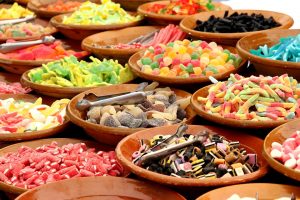
If you’ve ever listened to children’s music with your family or watched nursery rhyme videos together on the computer, chances are you’ve heard the popular rhyme “Sugar Rush,” or, as it is also commonly known, “johnny johnny.” A little boy, Johnny, is caught eating sugar by his father. He then lies when asked about it, with a bold “No, Papa!” His father asks him if he’s lying, and he again responds, “No, Papa!” When his father, suspecting he is not being truthful, asks him to open his mouth to prove his innocence, Johnny laughs and shows him the sugar. After two verses, Johnny is asked once again if he is eating sugar, but this time, he is not, and he finally tells the truth. There are many variations of this popular song, but what do we know about it, and why and how can it be used to enrich children’s learning and play?
History and Origins of “Sugar Rush”
Little is known about where this nursery rhyme comes from. While it is popular all over the world, particularly in the United States, the United Kingdom, and India, there is consensus about its author or origin. The rhyme’s original language appears to be English, and it seems to have been written recently, rather than having a long historical background like other popular children’s songs.
How to Use this Rhyme at Home or in the Classroom
“Sugar Rush” is a great song to use in early childhood play and learning environments. One benefit of this rhyme is that it illustrates a lesson about lying and why it is better to tell the truth. Johnny’s father gives him opportunities to tell the truth without making him feel ashamed or punishing him, and with his papa’s gentle guidance, Johnny realizes it is better to be honest. Additionally, the nursery rhyme is short and uncomplicated, making it easy for young learners to remember and sing independently or as a group. There are also opportunities for developing imaginative play skills through encouraging children to act out the roles of Johnny and his papa. The use of any song and rhyme in a learning environment, whether at home or in the classroom, engages children with language and promotes early literacy as well as social-emotional development.
Variations of “Sugar Rush”
There are a vast number of versions of the round and round nursery rhyme “Sugar Rush” song that are sung and enjoyed around the world. Some variations involve Johnny eating vegetables instead of sugar. Others have Johnny’s parents sneaking treats instead of Johnny. Still other versions have Johnny doing things completely unrelated to eating; he may be pretending to sleep, clean, or play nicely. Each variation of the rhyme follows the same basic structure as the classic song so it’s easily recognizable to listeners/
Interesting Fact
Did you know there are currently over seven MILLION versions of “Sugar Rush” or “Johnny Johnny” online? Wow!